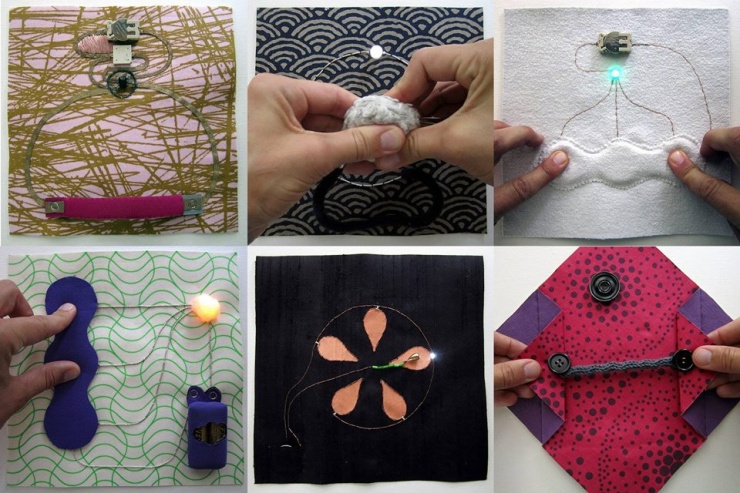Building and designing all kinds of textile sensors workshops as part of ČIPke Iniciative.

DATE: 24 – 26 October| 5 – 8 PM
MENTORS: KOBAKANT
LOCATION: RAMPA Lab, Kersnikova 4, 1000 Ljubljana
REGISTRATION: info@rampalab.org
About the Workshop
In this 3-evening workshop we will introduce a palette of conductive fabrics, fibers and threads from which you can construct all kinds of textile sensors. We will demand you be rigorous about investigating the conductive, resistive and piezoresistive properties of these materials. We will challenge you to hone your craft skills by producing well-made replicas of select designs. Finally, we will ask you to be inventive and produce and document a textile sensor design of your own.
During this workshop each participant will compile a swatch-book of the experiments, copies and new designs they produce.
About the mentors
Mika Satomi and Hannah Perner-Wilson have been collaborating since 2006, and in 2008 formed the collective KOBAKANT. Together, through their work, they explore the use of textile crafts and electronics as a medium for commenting on technological aspects of today’s 'high-tech' society. KOBAKANT believes in the spirit of humouring technology, often presenting their work as a twisted criticism of the stereotypes surrounding textile craftsmanship and electrical engineering. KOBAKANT believes that technology exists to be hacked, handmade and modified by everyone to better fit our personal needs and desires.
Registration
You do not need any previous knowledge to join ČIPke workshops, only a curious eye, ear and eager fingers. All the materials needed for the workshops will be provided for. The workshop will be held in English. The number of participants is limited, so please apply/announce yourself at info@rampalab.org.
Workshop is organised by RAMPA Lab in co-production with Ljudmila, Art and Science Laboratory and Project Atol Institute, supported by Slovene Ministry of Culture and MOL – Department for Culture. The ČIPke programme is supported by Municipality of Ljubljana and Ljubljana Student Organisation.
